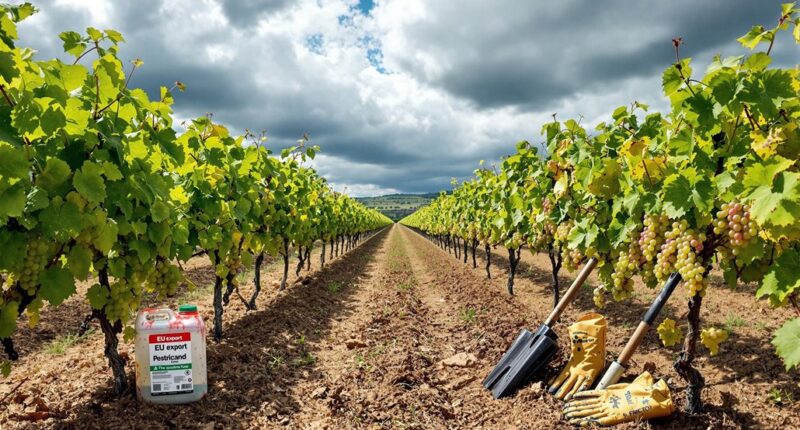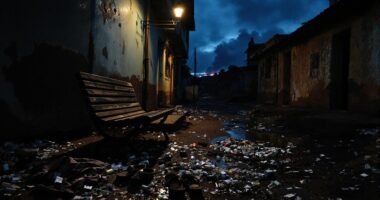The EU exports around 81,000 tonnes of banned pesticides to developing nations yearly, particularly affecting African agricultural workers. These workers often lack proper safety equipment while handling toxic chemicals. Meanwhile, EU vineyards face strict regulations despite imported foods containing these same banned pesticides—sometimes at levels 600 times higher than European limits. This creates both health hazards abroad and competitive disadvantages for European farmers. The cycle reveals troubling inconsistencies in global pesticide governance.
While the European Union claims to have strict pesticide rules for its wine producers, a shocking double standard has come to light. A 2008 study found that 100% of conventional EU wines contained pesticide residues. The average bottle had more than four different pesticides, with one sample containing ten different chemicals. These include substances linked to cancer and hormone disruption.
These concerns haven’t gone away. Even as the EU talks about cutting pesticide use, it allows imported foods to contain residues of chemicals banned within Europe. The analysis identified 24 different pesticides across the wine samples tested. Crops from developing countries can enter European markets with residue levels up to 600 times higher than what’s allowed for EU farmers.
The EU preaches sustainable farming while allowing imported foods with banned pesticide residues hundreds of times above domestic limits.
The hypocrisy doesn’t stop there. European companies export about 81,000 tonnes of banned pesticides to developing nations each year. This creates a dangerous cycle where African workers face direct exposure to toxic chemicals, while Europeans later consume the residues on imported foods. Recent data shows 8% of food imports to the Netherlands contain residues of pesticides not allowed in EU farming.
This double standard puts EU vineyard owners in a difficult position. They face strict rules while competing with imports produced under looser standards. Industry groups warn that proposed pesticide reductions could destroy 60-70% of EU vineyards by 2030, as farmers need 12-15 years to develop alternative pest management systems. Vineyard production is especially vulnerable as vines are treated 12.3 times per year on average with various chemicals.
The health impacts are serious. Wines have been found to contain chemicals that can damage DNA, harm unborn babies, and disrupt hormones. Cyproconazole, found in some wines, is toxic to reproduction and aquatic life. Workers in countries receiving EU’s banned pesticides face the worst exposure, often without proper safety equipment or training.
Current safety limits don’t account for the combined effects of multiple pesticides consumed together. This “cocktail effect” means even legal levels might pose health risks over time. Despite these concerns, the EU allows companies to sell dangerous chemicals abroad that it won’t permit at home.
Vineyard owners describe current regulations as creating “bureaucratic nightmares,” with proposed cuts making sustainable production nearly impossible in the near term. The European Confederation of Independent Winegrowers has suggested extending deadlines to 2035 with regular reviews to guarantee practical implementation.
As this crisis unfolds, consumers worldwide are left wondering about what’s really in their wine glass, while African agricultural workers bear the brunt of Europe’s toxic exports. The challenge remains: can the EU create policies that protect health globally while keeping European wine production economically viable?
Conclusion
The hypocrisy in EU pesticide policies continues to harm African workers while protecting European citizens. As organizations pressure companies to adopt consistent safety standards worldwide, affected communities are demanding justice. The coming months will be vital as international bodies consider stricter regulations. Meanwhile, workers poisoned in these vineyards face ongoing health struggles with little compensation, highlighting the human cost of this double standard.








